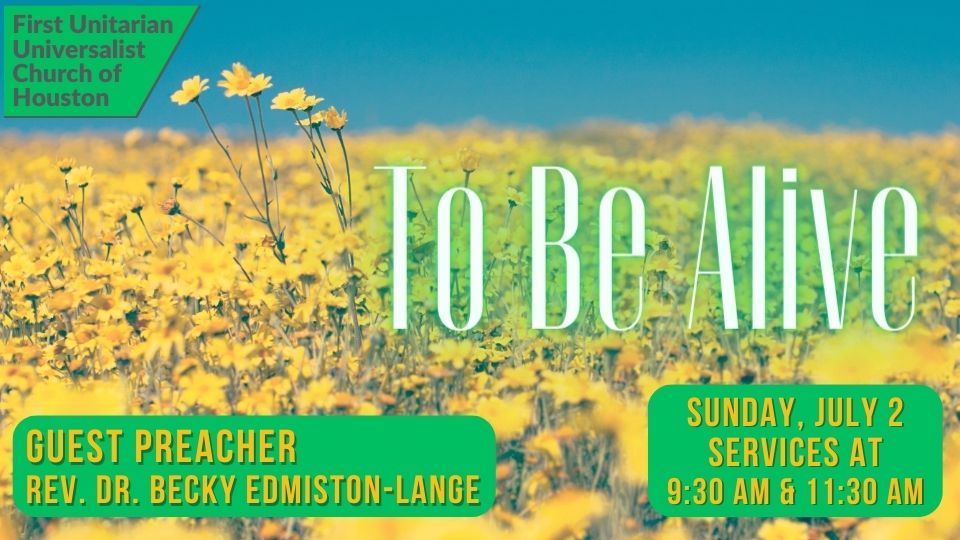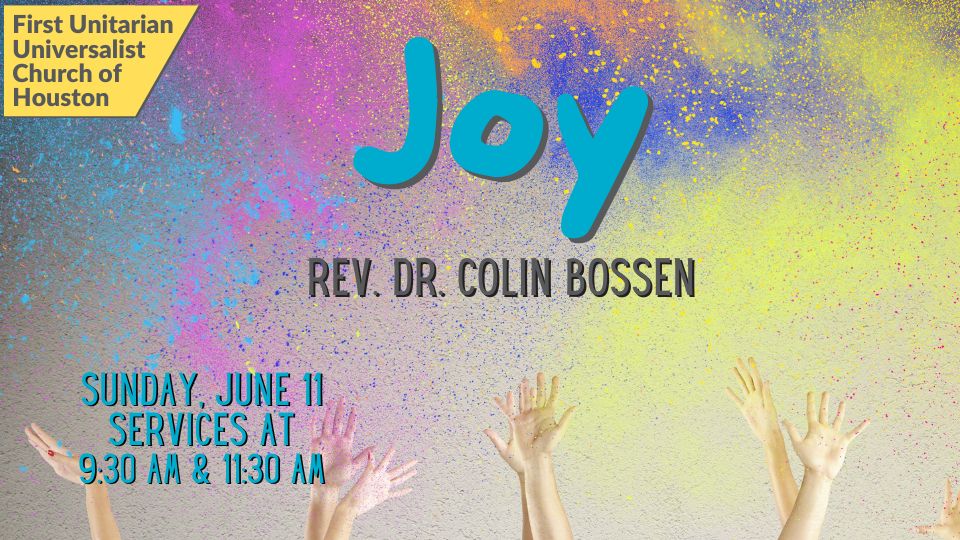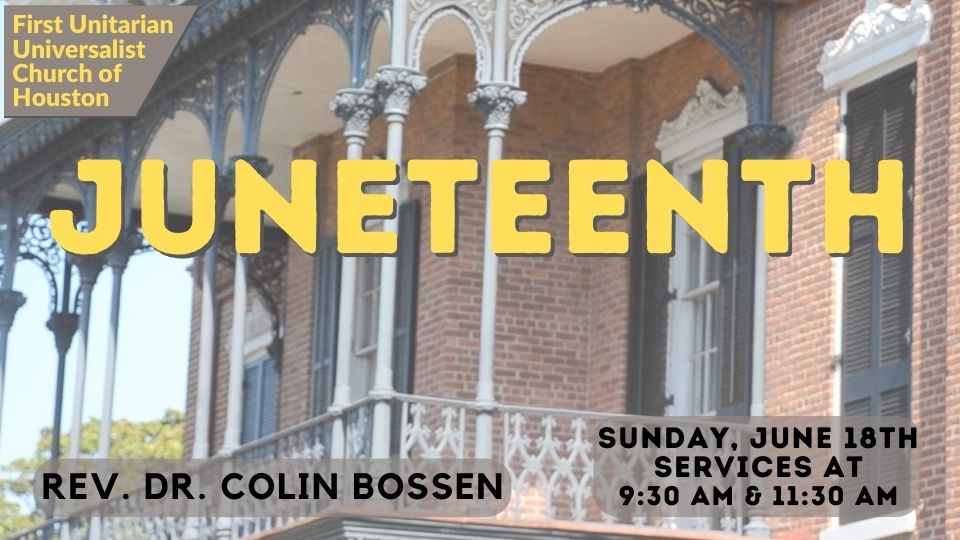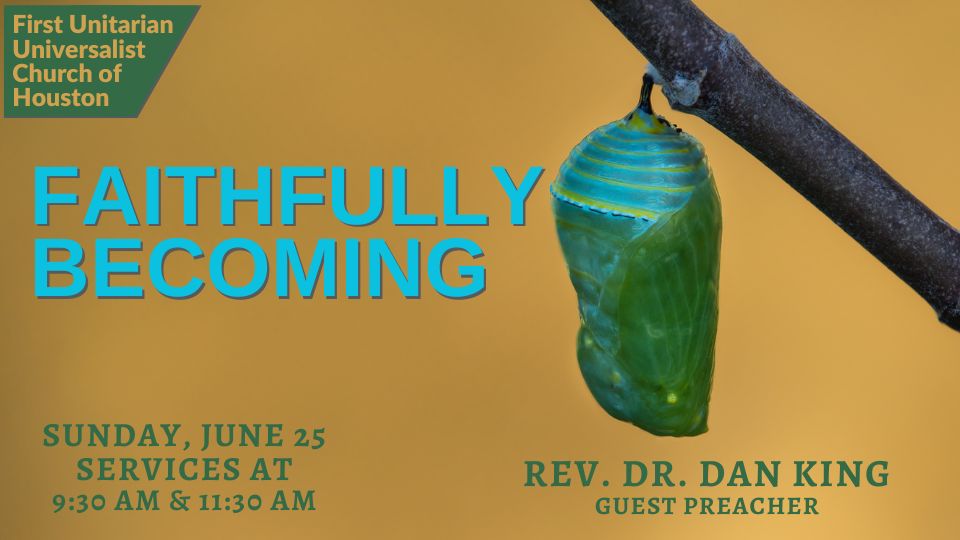News – June 30, 2023

Dear Members and Friends:
I've just returned from attending GA in Pittsburgh, the city of bridges, rivers and very complicated street intersections, on the ancestral land of the Osage and Susquehannock peoples. This was the second GA I have attended in person, my third total.
Last year, the Supreme Court handed down the Dobbs decision while GA was happening and we responded by joining a local rally and march in Portland, where we got to experience what it is like to demonstrate peacefully without police accompaniment. This year, there was a demonstration during one of the GA business sessions. There's never a dull moment.
This year, we elected Rev. Sofia Betancourt as our new UUA president, and considered two rather complicated matters of business that each evoked heartfelt responses from many UU’s. The first was a business resolution calling for the UUA to divest from all companies that are in any way related to the fossil fuel industry, including banks that do business with those companies, and to use those funds to make reparations to communities that have been historically harmed the most by the fossil fuel industry.
The second business matter was the vote to accept the Article II Study Commission’s proposed revision to Article II of the UUA bylaws for the purpose of continuing discussion and consideration over the next year. The Article II Commission has been working for the past two years to consider whether the current language is still an accurate reflection of the purposes, values, and covenant of the UUA, a process that is mandated to occur every 15 years, although there's no requirement that changes be made.
The details and discussion of these proposals are complicated and lengthy and I could not even accurately summarize them here. What I can share is how much my faith in our UUA members and leaders is strengthened when I witness the very messy business of living out our commitment to the democratic process within the covenant we make to engage with one another respectfully, assuming best intent.
It is easy for us to imagine that all UU churches and their members are very similar to ours, but there is significant variation out there. Some congregations have spent the past year in discussion and writing groups considering the proposed Article II revisions and drafting their own amendments. Others were clearly not even aware of the existence of the study Commission, much less its proposal. There were a total of over 800 proposed amendments submitted for consideration by the June 1 deadline. Each of them was posted on a discussion portal so that UU’s from around the globe could weigh in on them. The Article II Commission members read all of those comments and chose the ones with the most support and interest for closer consideration. A “mini assembly” was held prior to the business sessions for delegates and Commission Members to further discuss the remaining suggestions, finally narrowing it down to 15 amendments, each of which were discussed and voted on in General Business Sessions over the course of three days. A similar process was followed for the divestment and
reparations proposal, which resulted in revisions being made by the original authors so that it was brought to the floor with no amendments.
As you would expect from a gathering of UU’s, the comments about the proposals and amendments ranged from strongly in favor to vehemently opposed, and were made by individuals ranging in age, ethnicity, gender identity, location, and eloquence. Each speaker was afforded the same attention and respect, and each was thanked for their contribution, regardless of their position. Some made impassioned pleas, others presented rather dry, didactic arguments, but none were booed, shamed, or dismissed. A few were visibly anxious about speaking in front of so many people, and when they returned to their seats, those sitting near them were quick to offer reassurance. At the end of the discussion on divestment and reparations, a group of impassioned supporters staged a miniature march through the gathering, carrying signs and singing. While their demonstration was not scheduled, it was not disrespectful or overly disruptive, and so was accepted as a heartfelt expression of conviction and was met with neither opposition nor censure.
The way I saw it, everyone present recognized that our UU siblings held a spectrum of feelings and opinions, all of which were the result of thoughtful consideration and concern. We were gathered to participate in respectful dialogue about those ideas. We accepted that strong feelings need to be expressed, and that expression can be creative and effective, while also respectful of the different feelings of others. We recognized that for some, expressing strong feelings to hundreds of people was anxiety-provoking and required courage, and we honored that effort, regardless of our own opinions. In short, we were acting on our shared belief that we need not think alike to love alike. It was love in action. It was pretty amazing.
In Community,
Ruth Hoffman-Lach



